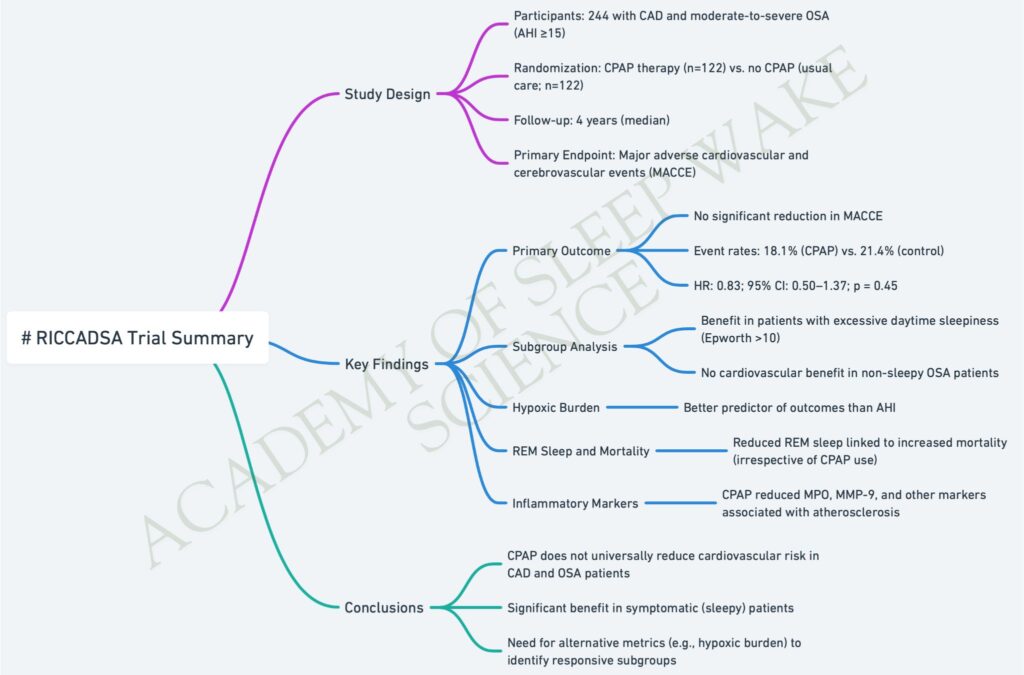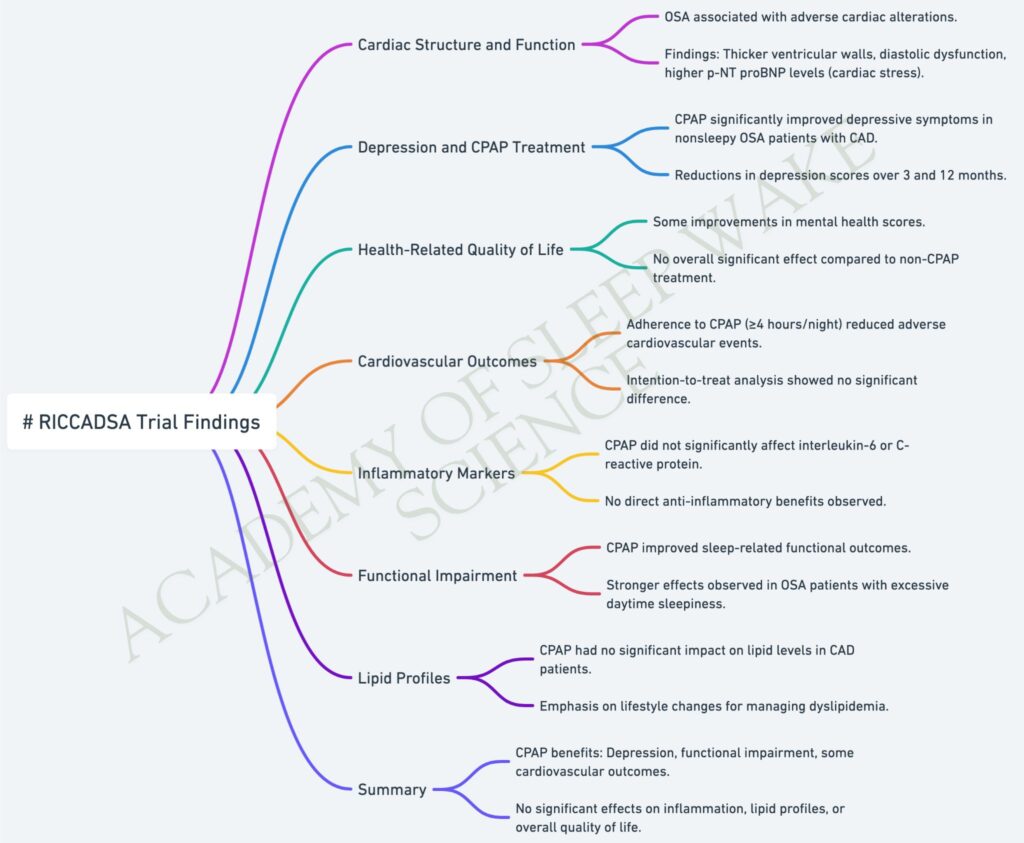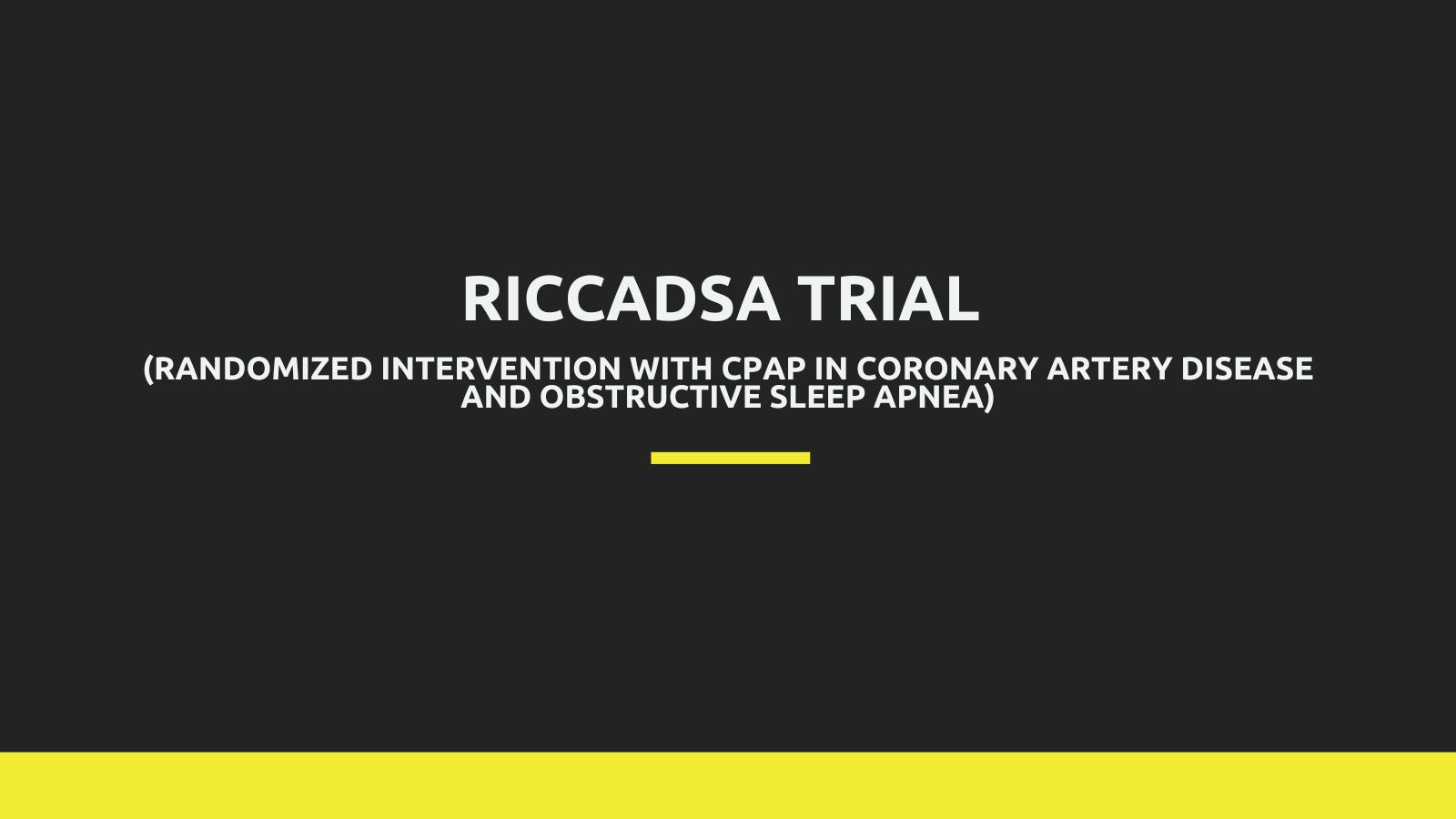| Population Studied | OSA patients with established cardiovascular disease (CVD). | Coronary artery disease (CAD) patients with nonsleepy OSA. | Acute coronary syndrome (ACS) patients with OSA. |
| Primary Objective | Assess whether CPAP reduces cardiovascular events in patients with OSA and CVD. | Evaluate the effect of CPAP on cardiovascular outcomes in CAD patients with nonsleepy OSA. | Investigate the impact of CPAP on cardiovascular events in ACS patients with OSA. |
| Primary Findings | CPAP did not significantly reduce major cardiovascular events (hazard ratio [HR]: 1.10, p = 0.34). | CPAP did not significantly reduce cardiovascular outcomes in intention-to-treat analyses but improved depression scores. | CPAP did not significantly reduce cardiovascular events but showed benefits in patients with high hypoxic burden. |
| Cardiovascular Mortality | No significant reduction in cardiovascular death with CPAP. | No significant effect on cardiovascular mortality in nonsleepy OSA patients. | CPAP may reduce cardiovascular mortality in patients with high hypoxic burden. |
| Depression Symptoms | CPAP improved depression symptoms, especially in patients with pre-existing depressive symptoms. | CPAP significantly improved depressive symptoms over 3 and 12 months. | Depression outcomes not specifically assessed. |
| Quality of Life (QoL) | CPAP improved QoL in terms of sleep-related symptoms but had no impact on cardiovascular outcomes. | CPAP had mixed effects on health-related QoL, with improvements in mental health domains. | QoL changes were not the primary focus of the study. |
| Hypoxic Burden | No direct focus on hypoxic burden, though its role was acknowledged in post hoc analyses. | Hypoxic burden not a primary outcome but indirectly linked to CPAP benefits in secondary analyses. | High hypoxic burden predicted greater benefit from CPAP in reducing cardiovascular events. |
| Adherence Impact | Adherence to CPAP (>4 hours/night) showed symptom improvements but no clear cardiovascular benefits. | Adherent patients showed improved outcomes, especially in depression. | Adherence to CPAP in patients with high hypoxic burden showed reduced cardiovascular risk. |
| Comorbid Conditions | Focused on patients with OSA and cardiovascular comorbidities. | Included CAD patients with nonsleepy OSA; less focus on other comorbidities. | Targeted ACS patients with OSA, emphasizing cardiovascular outcomes. |
| Conclusion | CPAP improves symptoms (e.g., sleepiness, depression) but does not prevent major cardiovascular events. | CPAP provides symptom relief (e.g., depression) but does not significantly alter cardiovascular outcomes. | CPAP does not reduce cardiovascular events universally but benefits patients with high hypoxic burden. |



